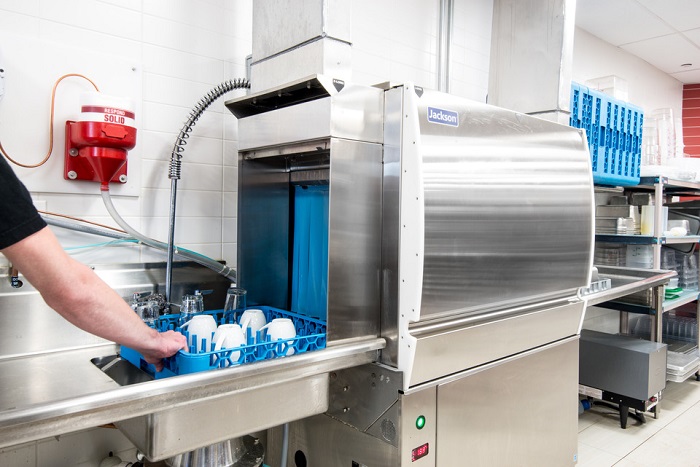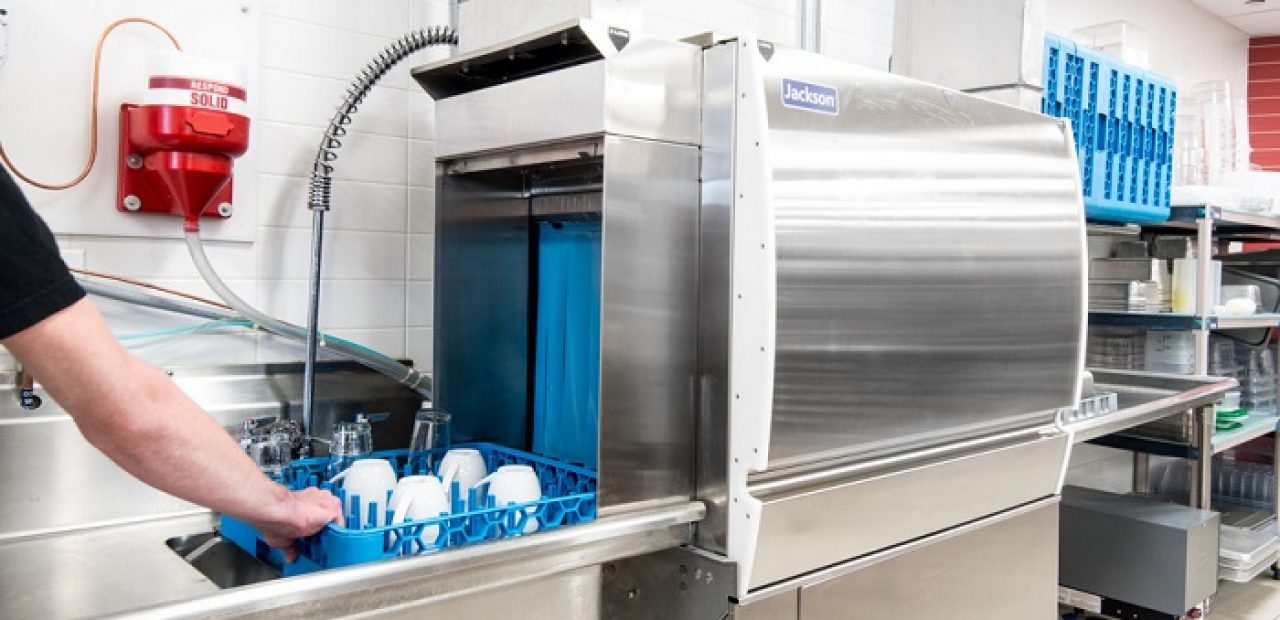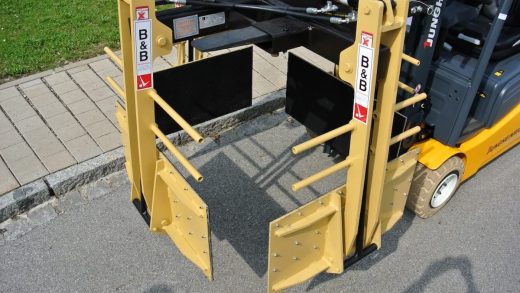Industrial Dishwashers: Types and High vs Low Temperature
The key to success of every restaurant is the quality of their dishes and how they’re presented to the customers. With that being said, kitchen equipment plays a bigger role than most people think. In fact, each and every piece of equipment in the kitchen can make or break the presentation and quality of the dish, and it can either gain you customers for years to come, or drift them away. One such essential piece of equipment, which is oftentimes overlooked, is the dishwasher.
The dishwasher machine should keep your glasses and dishes spotless, and it’s oftentimes a major failure or success point for health inspectors. Think back at the time when you visited some restaurant or a bar, and were served with a glass or plate that wasn’t properly washed. Major turn-off, right? Probably made you never want to visit that place again. For that reason, if you want to ensure your business continues to thrive and abide by local, state and federal laws, having the ideal industrial dishwashers is a must.
There are various different types of industrial dishwashers, so picking the right one for your restaurant can involves considering a few key aspects. The most commonly used types for commercial settings are the conveyor dishwasher, pass-through dishwasher, and undercounter dishwasher. All of these units can either be high or low temperature, and they all require rinsing chemicals and detergent.

The high temperature dishwashers wash the plates and glasses at about 60-70°C, and rinse at about 85°C. This temperature is high enough to sanitize through the sheer heat of the water. However, due to the intense heat, these dishwashers also require a condensate hood to function. Although these hoods are a great addition, they also increase the footprint and initial cost. However, the benefit is that they dry faster and don’t use extra sanitizing chemicals, which can harm the dishware materials.
Low temperature dishwashers on the other hand, wash and rinse the dishware at temperatures of around 50°C, which isn’t enough to sanitize them. With that being said, these dishwashers utilize chemical sanitizing agents with the water, which can raise the running costs. However, their initial cost is usually lower and they don’t require a hood, which makes them easier to place inside your kitchen. Bear in mind though that with these dishwashers, it’s essential that you get a good sanitizer as they can harm or tarnish certain types of dishware.
When it comes to the type of commercial dishwasher that is best for your business, your choice will mostly depend on the available space in your kitchen, the volume of your operations, and your budget. For instance, conveyor dishwashers are large, powerful and cumbersome. They’re able to process anywhere between 350 and 10000 racks per day. These models are made of stainless steel and are designed for heavy use in hospitals, school kitchens, cafeterias and other high-volume operations. Many of them come with easy controls and microprocessors which you can set to washing conditions, and there are models which have Energy Stars – which means they’re energy-efficient.
The pass-through commercial dishwasher is a smaller version of the conveyor washer, and it is designed to connect to dirty or clean dish-tables. The concept on which it works is – you fill up a compatible rack with dishes, put it inside the dishwasher, shut the door, and run the cleaning cycle. In a matter of moments, you can open the door and get clean dishware. These models can process anywhere between 30 and 400 racks per day, which makes them ideal for mom-and-pop restaurants, or other localized operations.
Lastly, undercounter commercial dishwashers are the ideal choice for compact bars or kitchens where you don’t have to clean at a rapid pace, but rather clean as you go. They can clean anywhere between 20 to 30 racks of dishware at a time, providing you with a steady supply of clean dishware. Most commercial units use a a single door, and they incorporate a wide array of displays and controls which let you work much more efficiently. They’re extremely convenient because of their small size, plus, they can fit almost everywhere.

















